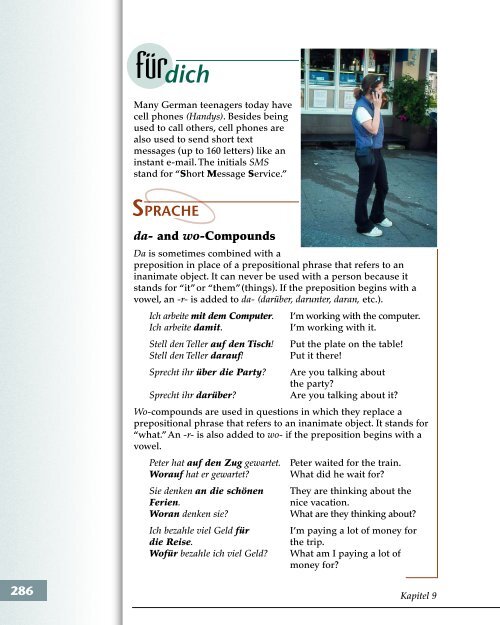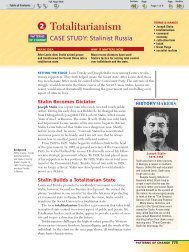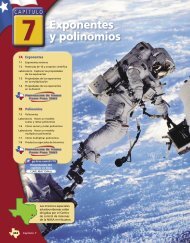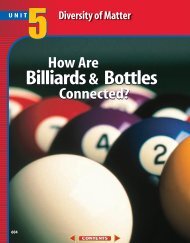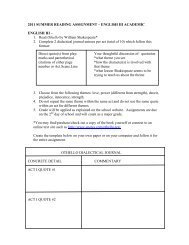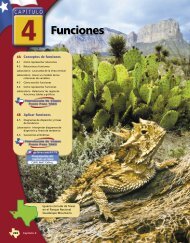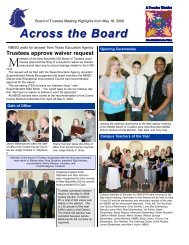Sie wollen auch ein ePaper? Erhöhen Sie die Reichweite Ihrer Titel.
YUMPU macht aus Druck-PDFs automatisch weboptimierte ePaper, die Google liebt.
Für dichMany German teenagers today havecell phones (Handys). Besides beingused to call others, cell phones arealso used to send short textmessages (up to 160 letters) like aninstant e-<strong>mail</strong>. The initials SMSstand for “Short Message Service.”SPRACHEda- and wo-CompoundsDa is sometimes combined with apreposition in place of a prepositional phrase that refers to aninanimate object. It can never be used with a person because itstands for “it” or “them” (things). If the preposition begins with avowel, an -r- is added to da- (darüber, darunter, daran, etc.).Ich arbeite mit dem Computer.Ich arbeite damit.Stell den Teller auf den Tisch!Stell den Teller darauf!Sprecht ihr über die Party?Sprecht ihr darüber?I’m working with the computer.I’m working with it.Put the plate on the table!Put it there!Are you talking aboutthe party?Are you talking about it?Wo-compounds are used in questions in which they replace aprepositional phrase that refers to an inanimate object. It stands for“what.”An -r- is also added to wo- if the preposition begins with avowel.Peter hat auf den Zug gewartet.Worauf hat er gewartet?Sie denken an die schönenFerien.Woran denken sie?Ich bezahle viel Geld fürdie Reise.Wofür bezahle ich viel Geld?Peter waited for the train.What did he wait for?They are thinking about thenice vacation.What are they thinking about?I’m paying a lot of money forthe trip.What am I paying a lot ofmoney for?286Kapitel 9


